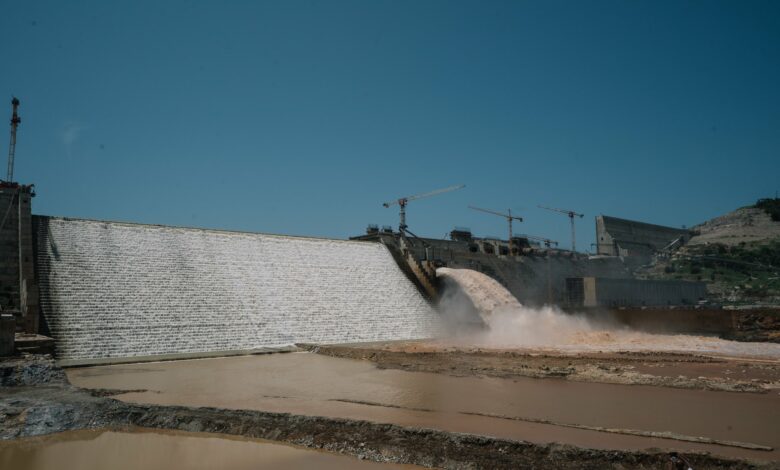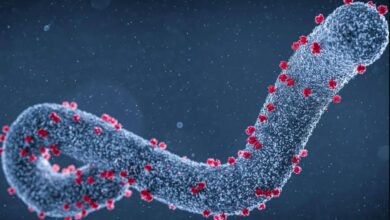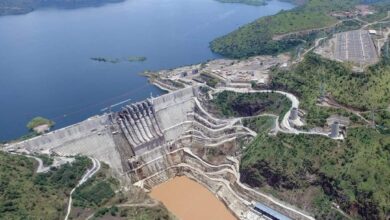
On Thursday, Ethiopia announced its rejection of the statement recently issued by the European Union regarding the Grand Ethiopian Renaissance Dam (GERD), describing the statement as “only preserving Egyptian interests,” according to the Ethiopian News Agency.
Spokesperson for the Ethiopian Foreign Ministry, Dina Mufti, said in a press briefing that the EU statement “does not take into account the common interests between countries, and that it preserves Egyptian interests only.”
The Mufti added that the statement “is biased and unacceptable by all standards, and that it aims to guarantee Egypt’s historical share of colonial agreements, which do not give the right to the rest of the Nile Basin countries.”
He added that “Ethiopia’s position is consistent on the issue of the Nile waters, especially in the issue of the Renaissance Dam,” and stated that his country “is working to ensure the common interests between the three countries,” and said that the statement “indicates the bias of the EU to Egypt, which does not give consideration to the countries bordering the Nile.”
Mufti stated that the European Union “was a supporter and observer of the Renaissance Dam negotiations between the three countries under the auspices of the African Union,” adding that the statement “supports Egypt’s position on the tripartite negotiations and that Egypt adheres to the historical right that divides the waters of the Nile River between Egypt and Sudan, regarding the right of benefiting from the natural resources of the Nile River, which the rest of the countries oppose,” according to the statement.
Mufti urged the European Union to “reconsider the statement and evaluate the issue of the Renaissance Dam, while not taking sides with one of the negotiating parties,” pointing out that Ethiopia “has a firm position in cooperation with the corridor and downstream countries on the Renaissance Dam issue.”
The Ethiopian News Agency stated that the construction process of the Renaissance Dam reached more than 80 percent as electricity was generated from the dam on February 20.
On June 20, the Egyptian Foreign Ministry published on its Facebook page a joint statement for the ninth meeting of the Association Council between Egypt and the European Union, where they welcomed the presidential statement of the Security Council on the Grand Ethiopian Renaissance Dam issued on September 15, 2021 on reaching an acceptable agreement that would be binding to all parties about the filling and operation of the dam.
The EU statement stressed the importance of the Nile as the only source of water resources and life in Egypt die to the water scarcity it suffers from.
Reaching this agreement as soon as possible is a top priority for the European Union and Egypt in order to protect Egypt’s water security and support peace and stability in the region as a whole, the statement added.
According to the statement, the European Union remains ready to support the negotiations led by the African Union and to play a more active role, if this role is beneficial and desirable by all parties, by making available the European Union’s rich experience in managing shared water resources in accordance with international law.
It added that with political will and the support of the international community, this conflict can be turned into an opportunity for many people.
Millions of people residing in the Nile Basin will benefit from an agreement on the Grand Ethiopian Renaissance Dam, as the agreement will create predictability and open the door to foreign investments in energy, food security and water security, the EU statement added.
Negotiations over the GERD have officially stopped since April 2021, after Egypt, Sudan and Ethiopia failed to reach an understanding before the start of the second filling of the dam, which Ethiopia implemented in July.
Cairo and Khartoum reject Ethiopia’s insistence on filling the dam before reaching a binding agreement on filling and operation.
Egypt, which relies considerably on freshwater from the Nile, has voiced fears that the GERD would negatively impact the country’s water supply.
Egypt has also insisted that measures be put into place to protect downstream countries in case of drought during the dam’s filling process.
Egypt and Sudan say they want a legally binding agreement, while Ethiopia says any pact should be advisory.
Egypt and Sudan consider the dam a threat to their vital water supplies, while Ethiopia considers it essential for development and doubling its electricity production.
The downstream nations fear possible blows to water facilities, agricultural land, and overall availability of Nile water.
Negotiations over the dam between Egypt, Ethiopia, and Sudan have stalled for years, with the three parties ultimately failing to reach any concrete agreement.
The disputed dam is the largest hydroelectric project in Africa, with a cost of more than four billion dollars. The construction of the dam began in 2011.
It is considered to be one of Egypt’s most serious water issues.




